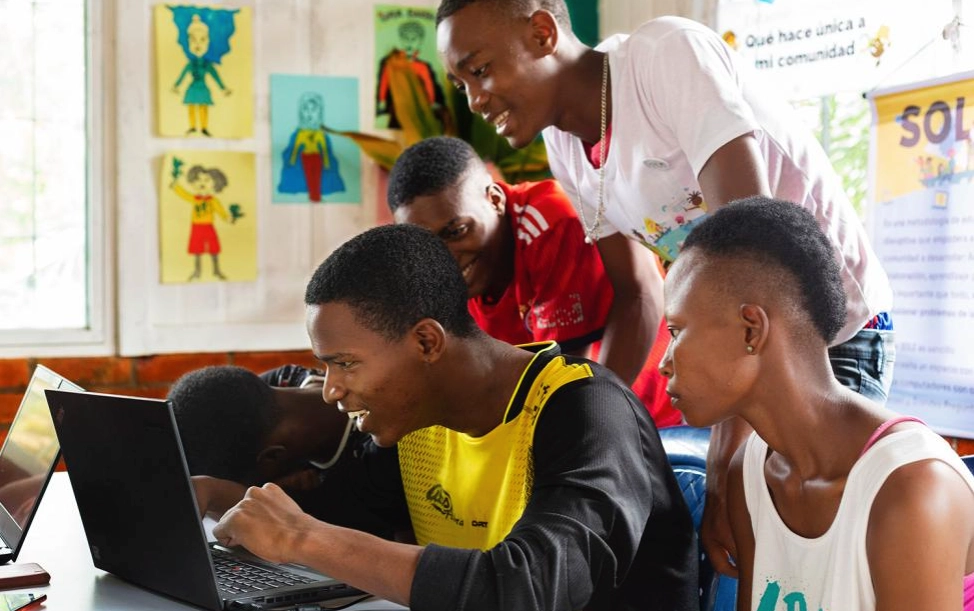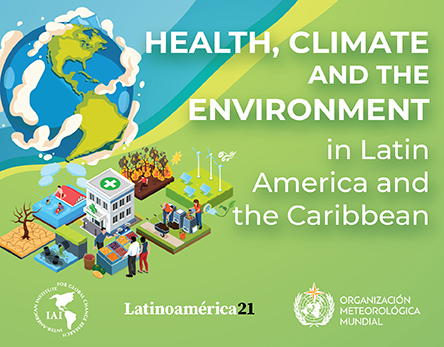Coauthors Ulf Thoene y Diego Dávila
The digital divide in Colombia, a country immersed in a complex post-conflict scenario, presents a significant challenge. In Colombia, digital lag is evident in several areas. For instance, the Digital Maturity Index (IMDV) 2021 showed that small and medium-sized companies have a significantly lower average digital maturity compared to large companies and startups. In addition, public entities show large differences in their performance levels in digital governance policy, with an average of 814 and 629 points out of 1,000, respectively. According to the latest data available from the national quality of life survey, 48.6% of households that stated that they did not have an internet connection during 2021 assured that it was because it was too expensive, they did not have coverage, or they did not know how to use it.
The digital divide in Colombia has a marked regional dimension. The most significant differences in performance levels in the public sector are between departmental and local entities. Most of those who do not have access to the Internet are located in rural areas far from the country’s large urban centers, which reflects a marked regional difference in digitization. The impact of the digital divide in Colombia also extends to multiple areas, including education, the economy, and social inclusion. For example, the Covid-19 pandemic exacerbated educational differences due to differences in access and use of technologies, something that negatively affected the physical, cognitive, and emotional development of children. In addition, the digital divide negatively impacts the economy, due to differences related to internet technology or e-commerce in Colombia.
In an interconnected world, digitalization is not only an option but a necessity. The problem of the digital divide transcends the inaccessibility of these technologies, as it is linked to socio-political, economic, and cultural factors that influence people’s access to them or their ability to use them effectively. In the Global South, digitization is associated with inequality, and the Covid-19 pandemic has exacerbated digital disadvantage and social exclusion in the country’s territory despite government efforts. The causes of digital lag in Colombia are multifaceted. It is influenced by factors such as economic and social inequality, insufficient infrastructure in rural and remote areas, and the lack of preparation of the educational system, but above all the lack of integrated and efficient policies. Despite the existence of digital public policies with positive results at the national level, there are still limitations to the effective implementation of the objectives of these policies in territorial and local entities.
As Colombia advances in the digitization of its economic and social life hand in hand with 5G technology, the use of artificial intelligence or the massive use of data, addressing the challenges of digitization becomes fundamental. In a world that is increasingly interconnected and dependent on digital technologies, neglecting this reality would limit progress and expose individuals, companies, and governments to a significant lag.
First, the private sector must learn to generate social and economic value by using digital technologies to reach remote audiences, overcoming geographical and time barriers. Second, the appropriation of new technologies involves not only access and skills but also motivation and the type of use to which they are put. Addressing digital exclusion requires going beyond access to technology and addressing the underlying reasons, empowering marginalized communities to participate fully in the digital world. Finally, this requires effective government actions and the development of digital transformation strategies to improve efficiency, collaboration, and citizen satisfaction.
In the complex situation that Latin America and the world are going through, Colombia has just elected its new local and regional leaders. These new leaders will take office on January 1, 2024, committing, according to Colombian law, to turn their campaign promises into tangible development plans. Understanding the intersection of technology with the private sector, the public sector, and the citizenry emerges as a catalyst for sustainable development, aligning with the 2030 Agenda’s goal of building inclusive societies. In this context, it is essential that new regional and local leaders understand the importance of digitalization and implement appropriate strategies to address it.
Ulf Thoene is an Associate Professor at the Universidad de La Sabana, Colombia. Ph.D. in Law and Sociology from the University of Warwick, UK.
Diego Dávila is Dean of the School of Government and International Relations at Universidad Santo Tomás (Colombia) and a Ph.D. candidate in Law, Government, and Public Policy. He is a researcher and lecturer.
*Translated by Janaína Ruviaro da Silva from the original in Spanish
Autor
Associate Professor at Universidad de La Sabana (Colombia). PhD in Law and Political Science from the Universidad Autónoma de Madrid. Postdoctoral Researcher at the University of Salamanca.











